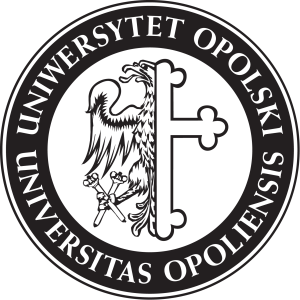Intercultural Awareness in Central and Eastern European Context
Section outline
-
-
Create Moodle Account
-

This comprehensive 30-hour course is designed to help you enhance your intercultural competence, foster empathy, and promote inclusivity, with a special focus on the Central and Eastern European (CEE) context. Participating will give you valuable skills and insights to prepare for diverse career paths in education and business. Through engaging modules and dynamic learning materials, you’ll acquire practical tools to navigate multicultural environments with confidence and ease.
This course has been developed collaboratively by international experts as part of the CAMINO project (project number 101143824), representing the expertise and experience of eight renowned universities: the University of Latvia, Vilnius University (Lithuania), the University of Tartu (Estonia), the University of Opole (Poland), J. E. Purkyně University in Ústí nad Labem (the Czech Republic), Comenius University Bratislava (Slovakia), Ludovika University of Public Service (Hungary), and King Danylo University (Ukraine).
This course is designed to enhance your intercultural competence, foster empathy, and promote inclusivity by combining theoretical insights, practical skills, and real-world applications. It prepares you for diverse career paths in education and business, providing tools to navigate multicultural settings effectively. By participating, you will develop the ability to understand and adapt to diverse cultural environments while cultivating a mindset of respect, empathy, and collaboration across cultural boundaries.
DISCLAIMERS
This course provides a general overview of Central and Eastern European (CEE) cultures, but it does not claim to cover all cultural nuances or individual perspectives. Participants are encouraged to approach the course content with an open mind and to recognize that culture is dynamic and context-dependent.
While the course aims to address common themes in intercultural interactions, the experiences of individuals and communities may vary widely. Participants should avoid generalizing cultural traits to all members of a particular group.
The strategies and insights provided in this course are intended as tools to foster understanding and inclusivity. They are not prescriptive solutions, as every intercultural interaction is unique and requires context-sensitive judgment.
Sensitive Content: Discussions on stereotypes, biases, and discrimination may involve sensitive or challenging topics. Participants are encouraged to engage respectfully and supportively in these discussions.
Educational purposes only: This course is designed for educational purposes and does not constitute professional advice. Any real-world application of the course content should consider the specific cultural and organizational context.
The views and examples presented by the lecturers, guest speakers, or in the course materials are their own and do not necessarily represent the official stance of the CAMINO project or the partner universities.
Access to the course platform (Moodle) may depend on participants having appropriate technology and internet connectivity. Technical support is available, but participants are responsible for ensuring they meet the minimum requirements to access course materials.
All course materials, including text, videos, and activities, are protected by copyright. They are for personal use only and may not be redistributed or reproduced without permission from the course creators.
Participants are responsible for their own learning and engagement. Active participation, respectful communication, and critical reflection are key to achieving the course outcomes.
EU Disclaimer and Acknowledgment
Each module is part of the course Intercultural Awareness in Central and Eastern European Context, developed under the CAMINO project funded by the European Union. The European Union’s support for this project does not constitute an endorsement of the content, which reflects the authors' views only. The European Union cannot be held responsible for any use of the information contained herein.
For inquiries or additional support, please contact: courses@uni.opole.pl
-

